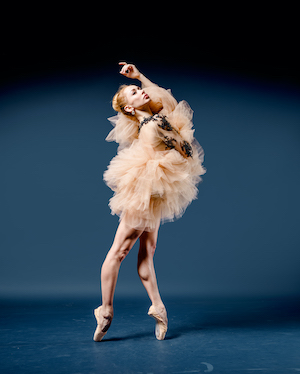Muntu Dance Theatre and Nunufatima Dance, both Chicago-based African and African American dance companies, joined forces to present the world premiere of Elevate at the University of Chicago’s Logan Center for the Arts on November 15. Even though Muntu was founded in 1972, both companies are a well-kept secret within the city’s dance scene. Their audience at the premiere was overwhelmingly African American, and while that works to the benefit of their mission of creating awareness and celebrating the ancestral African traditions within the black community, it also may unfairly cause them to be overlooked by broader audiences.
Elevate is an ambitious example of a collaboration across two companies that exhibits a vitality and genuine cultural appreciation of which Chicago should be proud. The production’s pieces explore the richness of the African diaspora’s dance traditions, featuring diverse styles from Africa, the Caribbean and the United States.
The costumes alone are reason enough to see the show, with each number featuring different regional dress, the bright colors and beautiful tailoring bringing a visual revelry to the stage. Projected images set the scene for each piece: from the acacia trees of the Savanna in the work Fankah (Strength), comprised of dances from New Guinea, to the interior of a nightclub in the infectious Afro Dance Break, danced to Serge Beynaud’s song “Kota Na Koto” that compels the audience to dance along in their seats.
The entire program is strong and transitions seamlessly from one scene to the next, but there are two pieces that are particularly noteworthy. Kumbaca, choreographed by Kameika Brown for Muntu, is a fusion of “three of Jamaica’s traditional dances: Kumina, Dinki Minie and Gerreh.” The three dances are performed during celebrations, and the “movements are identified by the popping of the legs, knocking of the knees and the flat-footed inching of the toes.”
The piece is shamelessly bawdy and laugh-out-loud hilarious. The female dancers are besieged by male dancers who seem intent on seducing with impertinently thrusting pelvises. However, in this ode to feminine strength and intelligence, the uninterested ladies show their suitors who’s boss. In one particularly cleverly choreographed moment, one of the women uses her leg to subdue the man, pushing him to his knees and eventually pinning him flat against the ground, towering above him triumphantly.
Grand Tambour is a musical interlude performed by those most physical of musicians, the percussionist. Muntu’s drummers are breathtaking. Not only do their clean and booming rhythms accompany most of the dance pieces, but their solo piece challenges them to create an absorbing visual spectacle of their drumming.
Elevate is a refreshing production in more ways than one. It celebrates the immense diversity of black music and dance, as well as the diversity of the bodies that dance it. Men and women of all shapes and sizes share the stage all dancing with the same precision and furious pace.
Elevate is an unassuming and celebratory production. It’s not a work made to impress by reinventing the wheel or assigning some profound overarching theme. It’s a work that effortlessly excites, entertains and inspires. The dancers express sheer joy, and that joy is insuppressibly infectious.
Reviewed at University of Chicago’s Logan Center for the Arts on November 15.


